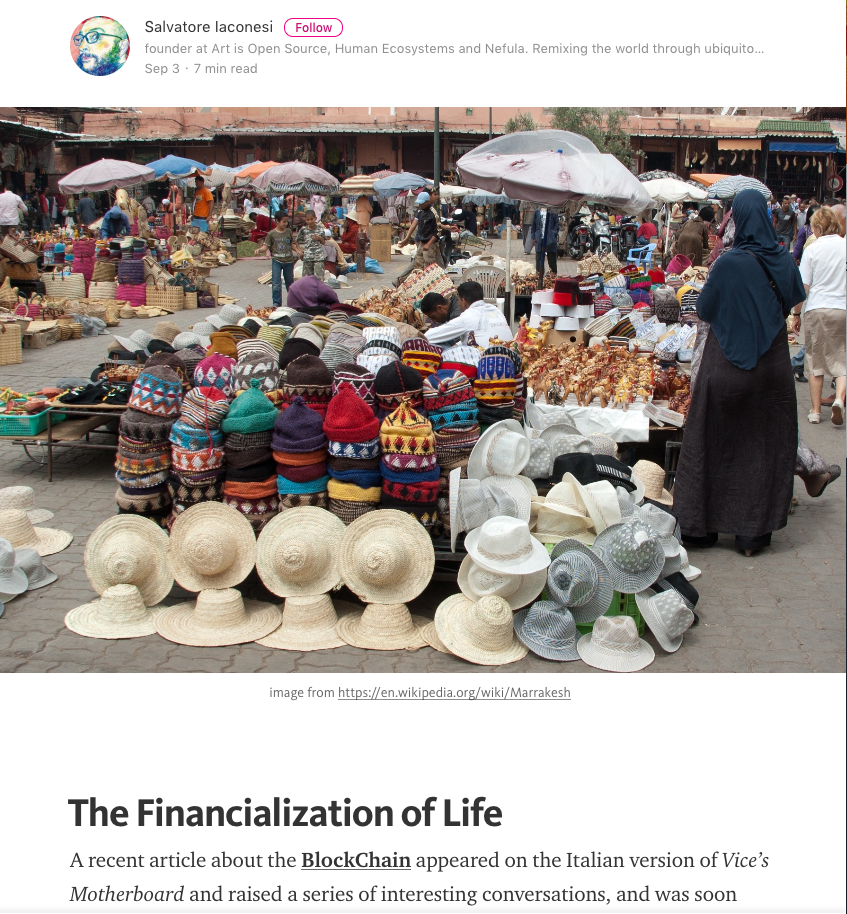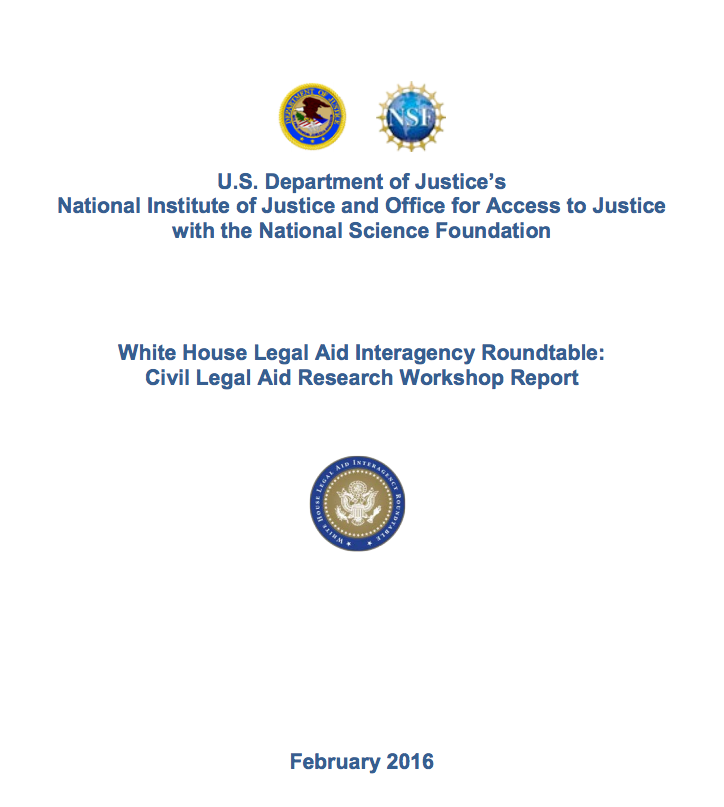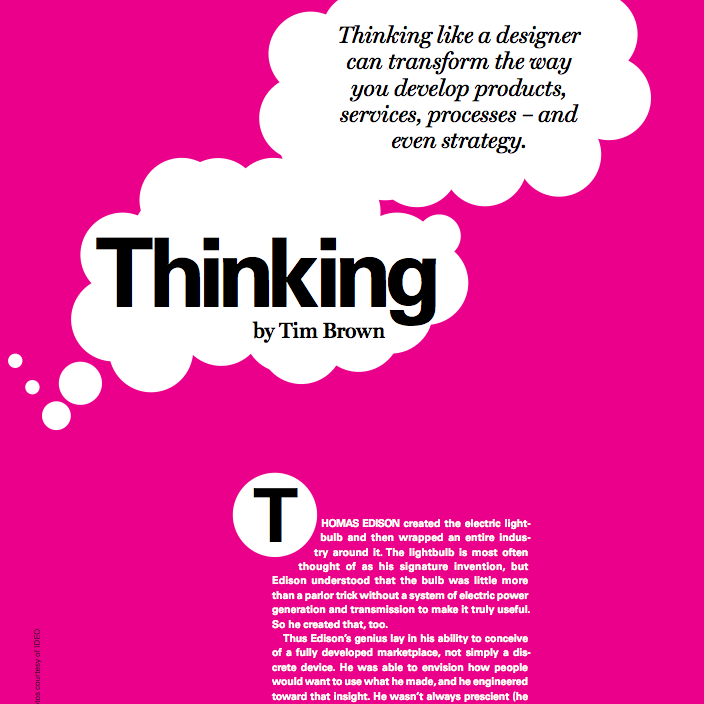As our Lab prepares for a possible prototyping sprint on Blockchain for the legal system, we are taking a design approach to this technology. Meaning, we are trying to investigate how people will interact with it, what unintended outcomes might result from it, and how we can be more human-centered in how we deploy it.

This piece from Salvatore Iaconesi, blogged on Medium, calledThe Financialization of Life points to some of the very human consequences that increased efficiency and power of Blockchain might have.
As we have more tech-based systems to authenticate what’s real and trustworthy, will this lessen our social bonds with each other? Will our lives become reduced more to transactions, algorithms, and formalities?
This might seem alarmist, especially in the face of so much energy towards Blockchain’s potential. But the author’s argument is strong — technology is not neutral, and as we introduce these new systems into our cultures and ways of living, we need to think through how they will affect our relationships with each other — and the fabric of our societies.
In my job, everyday, I deal with multiple points of view which confront with these impacts brought on by data, blockchains and cryptocurrencies, with a wide variety of subjects from hyper-technical ones, to entrepreneurs and investors, to policymakers, up to the ones beyond suspicion, “ordinary” people who have to understand what an artwork which uses the blockchain does, or who deals with culture, museums, the city’s neighborhoods. People who — whether they like it or not — have to do with these technologies and practices. A large variety.
I have the maximum respect for the blockchain. It possibly is the technology which bears the highest potential for radical innovation and transformation today. With all its limits and problems.
My critique is not technical, but psychological.
It moves across the domain of perception and of comprehension of reality.
In this domain — the one of the psychic processes which are engaged and shared by people and their relations as they interpret the world to understand how to orient themselves and how to act in it — technologies like the Blockchain are a disaster.
Why?
On the one hand, they are a very powerful agent towards the “transactionalization of life”, that is of the fact that all the elements of our lives are progressively turning into transactions.
Which overlaps with the fact that they become “financialized”. Everything, including our relations and emotions, progressively becomes transactionalized/financialized, and the Blockchain represent an apex of this tendency. This is already becoming a problem for informality, for the possibility of transgression, for the normation and normalization of conflicts and, thus, in prospect, for our liberties and fundamental rights, and for our possibility to perceive them (because we are talking about psychological effects).
On the other hand, they move attention onto the algorithm, on the system, on the framework. Instead of supporting and maintaining the necessity and culture of establishing co-responsibility between human beings, these systems include “trust” in procedural ways. In ways which are technical. Thus, the necessity for trust (and, thus, on the responsibility to attribute trust, based on human relations) progressively disappears.
Therefore, together with it, society disappears. Society as actively and consciously built by people who freely decide if and when to trust each other, and who collectively agree to the modalities of this attribution.
What remains is only consumption of services and products. Safe, transparent and all. But mere transactionalized consumption. Society ends, and so does citizenship: we become citizen of nothing, of the network, of the algorithm.
These are not technical issues, but psychological ones, perceptive ones. And, thus, even more serious.
Read the rest on Medium.


